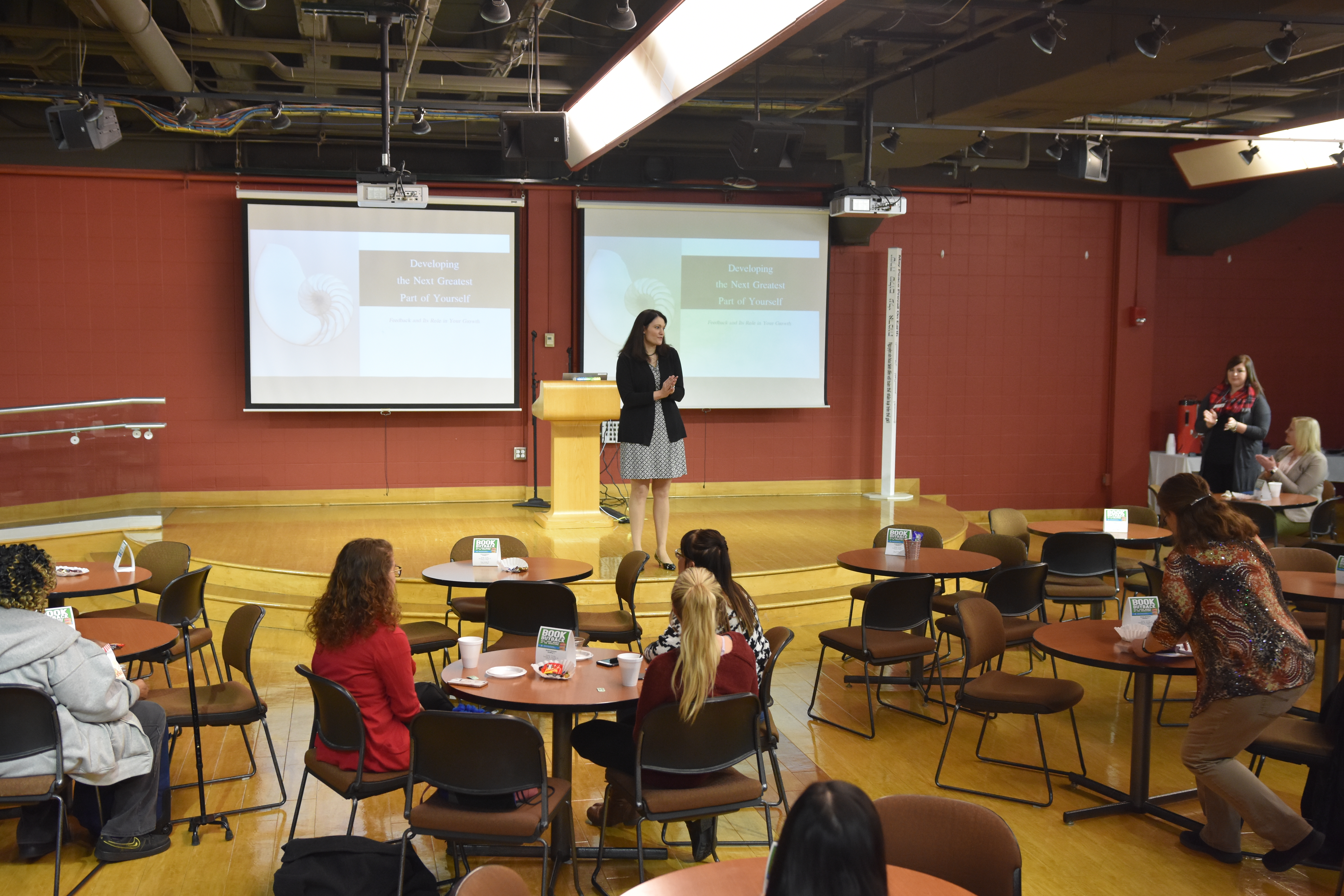The Student and Community Engagement office has presented Sinclair Community College with a variety of topics to pick and choose from in their Sinclair Talk series on campus.
Recently, there was an event on campus called “The Art of Networking.” This specific event, amongst others, is one of the many efforts Sinclair has provided for students to have a diverse, safe, and communal learning experience.
Tristan Chaput of the Student and Community Engagement office was able to sit down with me to have a conversation about Sinclair Talks. more specifically, how they are beneficial to students and how they have become more than talking, but rather a means to have a dialogue about pressing issues in our society.
Chaput spoke of the various topics students can learn about in future Sinclair Talks this semester.
“Feb. 28, Sinclair is hosting a talk on stressing less [a 2 part event, recognizing trauma as well as fatigue, and addressing those stressors,” she said.
Chaput continued:
“We have a Woman in Leadership talk in March because it’s Women’s history month, [this event also has 2 parts, including] Leadership: Army Strong, and Business Leadership in a Diverse World and much more!”
Now that you’ve seen a glimpse into the topics being covered this semester, you’re probably wondering if Sinclair students suggest topics to cover? The answer is yes!
Chaput is always accepting suggestions on the diversity of topics around campus. It’s encouraged to make suggestions because without them, they wouldn’t be geared towards the students.

In other words, she’s always open to feedback. You can contact her through email at tristan.chaput@sinclair.edu. Her office is located in building 8, room 8025.
In addition to this, Chaput states, ”Students can engage on campus through the sinclair website, @sinclairenegage on Twitter, Facebook, and the Clarion.”
Chaput then spoke about how Sinclair Talks try to include all categories of students and relevant issues related to them.
”We [the Student and Community Engagement office] try to have conversations that will bring everyone together, raise awareness and appreciate all cultures. Hopefully it engages people to have those difficult conversations other than with friends.”
In one final statement, Chaput commented:
”Sinclair aims to have these talks to tell the story of all populations at Sinclair because it’s important to hear their sides of the story as well.” This is critical in understanding how Sinclair forms their talks and wants to reach all audiences despite gender, race or nationality.
My question to all of you is what makes you want to engage on campus?
Whether it be through politics, womanhood, military, poetry or assault these issues need to be discussed to have an open dialogue that will engage us in a larger conversation.
 Gabrielle Turner
Gabrielle Turner
Social Media Coordinator

